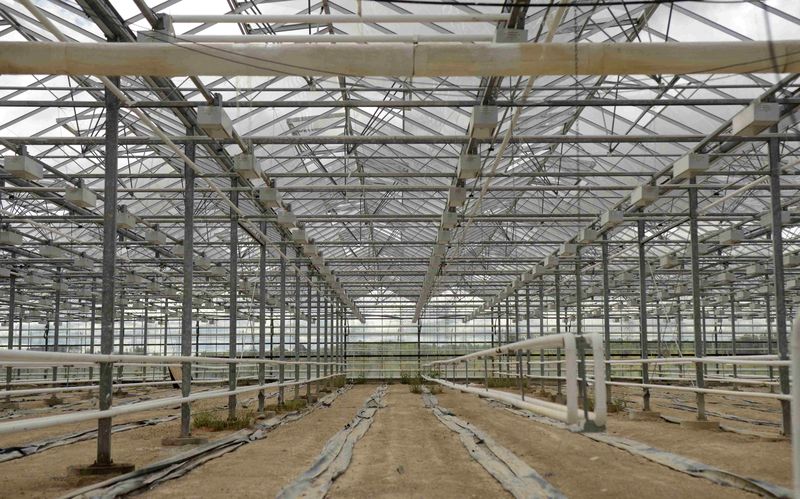By Euan Rocha, Nicole Mordant and Jim Regan (Australia)
TORONTO/VANCOUVER/SYDNEY XX (Reuters) - Many of the world's junior miners are laying down their picks and shovels to start new ventures ranging from egg exporting to medical marijuana farming, as they as try to survive a crash in metals prices by shifting away from exploration.
Prices for copper, gold, iron ore, coal and almost every other metal have collapsed, stalling exploration work and hitting early stage miners particularly hard. These firms typically find the deposits that larger miners often then go on to acquire and develop into mines. But there's scant demand for new sources of metal now.
Pivoting into other businesses has happened during mining funks in the past, including a spate of defections into the tech sector during the dotcom boom in the late 1990s. But now the concern is that when prices eventually do rebound, there will be fewer junior miners, and a reduced pool of new mine prospects.
"No one has any interest in a grassroots exploration project right now," said Yari Nieken, chief executive of Chlormet Technologies , which has bought an e-cigarette company and has a license to grow medical marijuana pending.
Canada made it legal to buy marijuana from licensed producers with a doctor's prescription in 2014. Regulator Health Canada estimates that the Canadian medical marijuana industry will reach C$1.3 billion (US$987 million) in a decade.
Canada's Century Iron Mines (TO:FER), whose mining projects are backed by two major Chinese companies, Minmetals and Wuhan Iron and Steel Corp (WISCO), owns development stage iron ore assets in eastern Canada. In July, Century started a new independent venture to distribute Australian eggs in Hong Kong, Macau, and potentially mainland China.
Century aims to piggyback on Australia's move from a reliance on mineral exports to shipping food and agricultural products to a growing Asian middle class.
"Due to the downturn in commodity prices, Australia's moving its focus from mining to dining," said Century CEO Sandy Chim. "We're just an exploration company, but we have a solid balance sheet, and we feel we can also do the same.
"We see a good opportunity to start a small, but meaningful food distribution business that can capitalize on our network in China."
The shift to egg distribution will help create a cash flow generating business until iron ore prices recover, Chim said. While Century isn't turning its back on mining, it's considering buying food production assets, such as fisheries, while it waits for the sector to rebound.
This business shift by miners is most visible in Canada, home to the majority of the world's publicly-listed miners, but is also seen in other mining centers like Australia and Brazil.
ABANDONING SHIP
Century may be able to ride out the cycle, but some of its smaller peers both in Canada and overseas have begun to abandon the mining sector altogether, as it becomes increasingly difficult to raise financing.
In January, Brazil's All Ore Mineração SA decided to end its commodities operations and enter the cosmetics and hair-care markets by buying Sweet Distribuidora, also known as SweetHair, in an all-share, no-cash deal. The new company, renamed Sweet Cosméticos (SA:SWET3), hopes to sell beauty products developed using biotechnology and nanotechnology.
In March, TSX Venture-listed Sabre Graphite bought DraftTeam, a website offering fantasy sports games. It has since changed its name to DraftTeam Daily Fantasy Sports Corp (V:DTS). Australia's Erin Resources (AX:ERI), which was previously exploring for gold in Senegal, has ventured into the medical marijuana business.
Supreme Pharmaceuticals Inc (CD:SL), formerly a copper and gold explorer with projects in western Canada, is also seeking a license to grow medical marijuana in Canada and has bought a greenhouse facility in Ontario.
"With the downturn that the mining industry has suffered, I think the smart and innovative entrepreneurs in the sector are looking for other asset types that can rebuild businesses and restore lost value for shareholders," said John Fowler, Supreme's Chief Executive.
Australian-listed International Goldfields (AX:IGS), which is investing in medical marijuana assets overseas, has seen more trading activity in its stock since it moved away from mining, according to director David Tasker. The shares trade for less than a cent each.
The company said its gold investment in Brazil and joint venture in the U.S. were offering limited value to its shareholders.
"Also, the level of support we could expect from the capital markets was very, very minimal, if not all together non-existent," Tasker said. "Once that reality dawned, it was incumbent on us to look for alternatives."
The hundreds of largely TSX Venture-listed exploration companies have been among the hardest hit in the current downturn, as investors have fled the sector due to prolonged decline in metal prices. Those tough conditions also mean that, cash-strapped larger rivals aren't willing to invest in new projects.
Some institutional and retail investors, while dismayed by the collapse in exploration company values, are sanguine about the shift away from mining.
"I didn't buy this stock thinking I was investing in the egg distribution, but I've no problem with them doing other things," said Ian Morrison, a retail investor who owns more than 500,000 shares in Century, the iron ore miner turned egg distributor.

"I look forward to seeing what their next move will be because I do not think they are putting everything they have got into Aussie eggs."